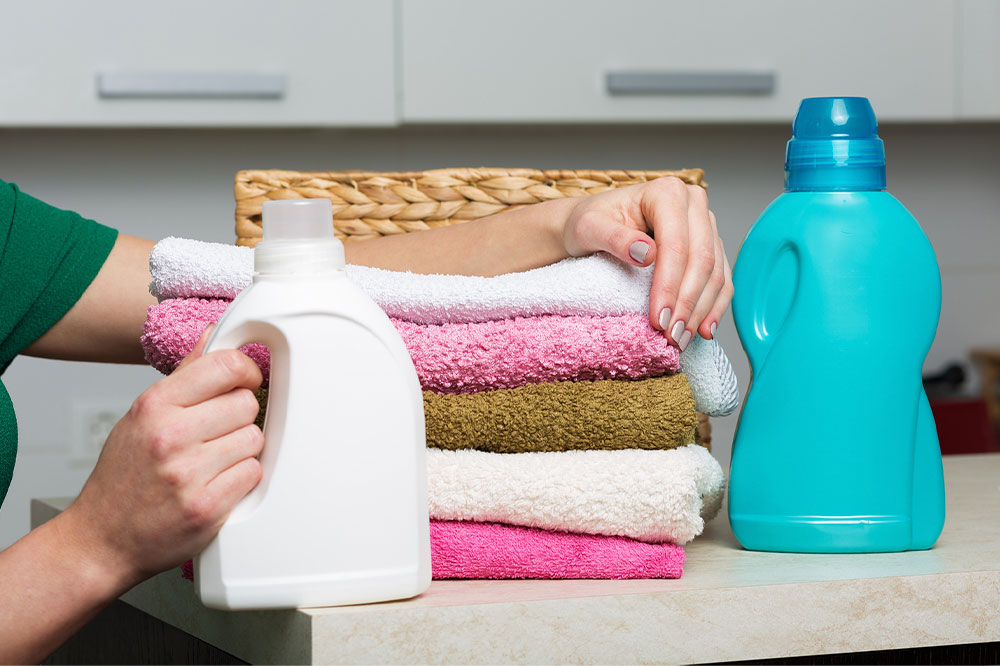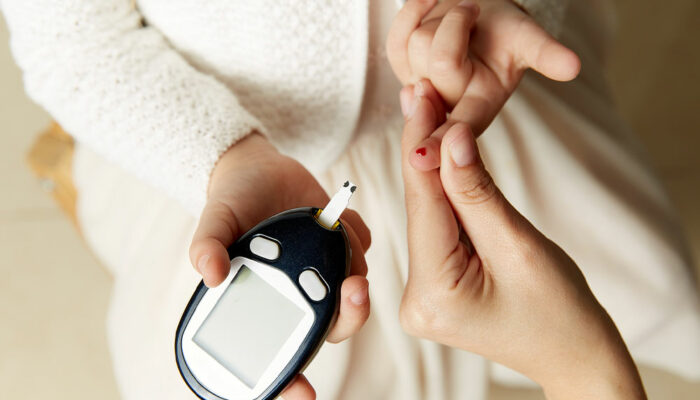6 senior-friendly liquid detergents

Fabric cleaning and washing products are loaded with chemicals and can cause skin allergies, respiratory problems, headaches, and blurred vision. Seniors face a higher risk from these products as their overall health issues increase with age. Thus, it is imperative for them to choose certified and safe products for all sorts of laundry needs to stay protected from preventable emergencies. Accordingly, here are some top senior-friendly laundry detergents and cleaning products to note.
Six best senior-friendly liquid detergents for use
Based on the above guidelines, here are six great senior-friendly liquid detergents for daily use:
Tide Purclean Honey Lavender Liquid Laundry Detergent
The Tide Purclean Honey Lavender Liquid Laundry Detergent is Tide’s first plant-based liquid detergent. It is certified by USDA and is free from dyes, chlorines, dyes, phosphates, or optical brighteners. It is available in 24, 32, 48, and 64 ounces and is safe to use in all washers. The perfume is mild, and it can remove the grittiest of dirt.
Puracy Natural Stain Remover
If you are looking for spotless clothes and stains bother you, you can try the Puracy Natural Stain Remover. It can remove all types of stains caused by wine, food, coffee, or oil, and the associated odors. It also works on all fabric types, including your delicate clothes, linen, bedsheets, carpets, and floor mats. If you use cloth diapers, this product can also clean them perfectly without any stains or odor.
Persil® ProClean®
Persil is one of the best liquid detergents for removing tough stains and has been a favorite detergent for decades. It can be used in all types of washers and for all water temperatures. If you have some old, unnoticed stains, and your current detergent has been ineffective, you can switch to Persil, as it can remove tough old stains too. It is available in 40 oz bottles that seniors can handle and use without difficulty.
Botanical Origin Laundry Detergent
Botanical Origin Laundry Detergent is a plant-based liquid laundry detergent. It is completely free from synthetic dyes, fragrances, phosphates, parabens, and brighteners. It is safe for babies and seniors; it is hypoallergenic and has been tested by dermatologists. You can use it with cold and warm water. The senior-friendly laundry detergent has a beautiful fragrance, containing natural orange blossom and citrus essential oils. It is also cost-effective as one 54 oz bottle can wash about 72 loads of laundry, bringing your per-wash cost to the minimum.
Seventh Generation Free and Clear Fragrance-Free Natural Liquid Laundry Detergent
Seventh Generation Free and Clear is a popular and loved detergent brand. The brand has launched a plant and mineral-based liquid detergent that is safe for all and does not carry any risk of health issues for seniors. It is easily available in retail stores and online stores. It has been tested by dermatologists and certified by EPA and USDA certified. If you prefer a detergent with fragrance, it also comes with a fragrance option. It is available in smaller bottles, and a 40 oz container can wash 53 loads making your per-wash-cost affordable.
Cleancult
Cleancult is an eco-friendly product that is hypoallergenic and non-toxic to the environment. It comes in refillable-glass bottles of 32 oz each, and you can wash 64 loads of laundry with it. It is available in Juniper and Sandalwood fragrances made from essential oils. It is also available in a no-fragrance option.
Now that you know which laundry detergents are best for seniors, here are some additional tips for choosing the right option.
Benefits of liquid detergents
The main types of laundry detergents available in the market include liquid, powder, single-dose pods, tablet detergents, and laundry sheets. While single-use pods, tablets, and laundry sheets are convenient, they are expensive; powder detergents can be difficult to use for seniors. Liquid detergents, in contrast, are efficient for all stains and convenient to use. They dissolve immediately and cause less foam requiring less water. Unlike powder detergents, they do not leave any residue on your clothes. You can also find hypoallergenic, eczema-friendly liquid and 100% organic liquid detergents for seniors with sensitive skin.
Tips for choosing the right liquid detergent for seniors
Find out how much liquid detergent is needed every month based on the volume of laundry, type of machine, water quality, and fabric used.
Identify the most effective cleaner for tough stains, as spilling food is common as one ages. You can also look for products that remove odors if you have incontinence or wear diapers.
If you have sensitive skin, psoriasis, or eczema, buy hypoallergenic detergents that are safe for the skin.
You can also opt for detergents available on subscription, where you pay once, and your detergent is delivered to your doorstep every month.
Compare the costs of more than one brand and work out the cost per wash to get the best value for money.
Look for detergents that are available in smaller sizes and containers so that you can lift and use them conveniently. Large containers may be cheaper, but lifting them and pouring them into the measuring caps may be cumbersome. If liquid detergent spills onto the floor, it can cause slips and lead to serious injuries.
Read the ingredient list and ensure that the liquid detergent does not contain any harmful chemicals.
Choose brands approved by the Environmental Protection Agency (EPA) or the United States Department of Agriculture (USDA). If you have sensitive skin, look for products recommended by dermatologists or by the National Eczema Association and National Psoriasis Foundation.
Additionally, it is crucial to avoid certain ingredients in products. Given below is a list of ingredients that can be found in household cleaners and laundry detergents.
Eight harmful household chemicals that seniors should avoid
Some of the common chemicals found in laundry detergents that cause adverse health impacts in seniors include:
1,4-Dioxane, used as a solvent and degreaser, is a carcinogen.
Sodium Laureth Sulphate (SLS), a foaming agent, can cause eczema, rosacea and psoriasis.
Sodium hypochlorite, known as bleach, is an optical brightener that converts UV light to visible light and makes white clothes look brighter. It can cause lung and skin irritation.
Formaldehyde, a preservative, can irritate the skin, lungs and eyes.
Phosphates used to soften hard water can cause nausea, diarrhea, and skin problems.
Nonylphenol ethoxylate can lead to poor reproductive growth, early menstruation, and low sperm count.
Benzene, a surfactant to release dirt from clothes, can irritate our eyes, skin and nose.
Synthetic fragrances are added to keep the clothes smelling fresh after washing. They are usually a combination of thousands of chemicals and can trigger asthma and other respiratory symptoms.

